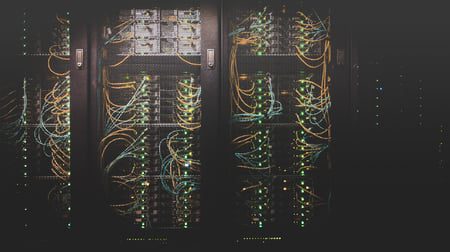Artificial Intelligence (AI) is no longer a concept reserved for science fiction or enterprise-level computing. It has woven itself into the very fabric of our daily lives, particularly through consumer electronics. From smartphones and wearable gadgets to smart home devices and personalized streaming recommendations, AI technologies are transforming how we interact with our surroundings. In this blog, we’ll explore how AI is integrating into consumer technology, reshaping user experiences, and setting the stage for a smarter future.
The Rise of AI in Consumer Electronics
The integration of AI into consumer electronics devices has been accelerated by advancements in machine learning, edge computing, and vast amounts of user data. Today’s AI-enabled devices can learn user habits, predict preferences, and offer personalized experiences in real time. From thermostats that adjust based on your routine to earbuds that adapt sound quality to your environment, AI enables electronic devices to deliver smarter and more intuitive experiences.
According to data from Statista, the market size of AI in consumer tech is expected to exceed $100 billion by 2030, underlining the fast-paced adoption and significance of AI-powered products.
Enhancing User Experiences with AI Algorithms
AI algorithms lie at the heart of this technological evolution. These complex data models enable devices to analyze user behaviors and environmental data to make intelligent decisions. For instance, AI-powered voice assistants like Amazon Alexa and Google Assistant leverage natural language processing to understand and respond to user commands with increasing accuracy.
Similarly, smart TVs use AI to recommend shows based on viewing history, while AI-driven fitness trackers analyze physical activity to offer customized health advice. This shift is not just about convenience, it’s about enhancing user experiences and increasing customer satisfaction through hyper-personalized services.
AI in Smart Homes and Daily Life
The smart home is one of the most prominent areas showcasing how AI is integrating into consumer technology. Devices such as AI-enabled security cameras can detect unfamiliar movements and send real-time alerts, while AI-powered lighting systems adjust brightness and color temperature based on the time of day and user preferences.
In kitchens, AI-driven appliances can recommend recipes, set timers, and monitor cooking progress. Even robotic vacuums utilize AI algorithms to map rooms and navigate efficiently, learning to avoid obstacles and optimize cleaning routes over time.
These examples demonstrate how AI technologies are not just supporting functionality, they are fundamentally changing how we live.
Personalized Experiences in Real Time
One of the most impactful aspects of AI is its ability to deliver personalized experiences in real time. AI systems analyze vast amounts of data—your location, time of day, behavior patterns, and even biometric data—to tailor interactions to individual needs.
Wearable tech is a strong example of this. Devices like the Apple Watch or Fitbit use AI to interpret health data and provide real-time insights, such as suggesting breathing exercises during stressful moments or encouraging movement after periods of inactivity.
AI is also revolutionizing in-car technology. AI-enabled infotainment systems can recommend routes based on driving habits, adjust climate controls automatically, and even detect drowsiness, making transportation safer and more enjoyable.
AI and the Future of Consumer Technology
The future of AI in consumer technology holds even greater promise. As edge AI continues to evolve, devices will become even more efficient at processing data locally, reducing latency and increasing responsiveness. This will be critical for applications like augmented reality (AR), gaming, and real-time translation tools.
Moreover, AI-driven sustainability efforts are emerging, such as smart appliances that optimize energy usage and reduce waste. As consumers become more environmentally conscious, the integration of AI into eco-friendly solutions will further enhance the appeal of AI-enabled devices.
Key Benefits of AI Integration in Consumer Tech
– Improved Efficiency: AI enables faster decision-making and automation of routine tasks.
– Greater Personalization: Devices adapt to users’ needs and preferences.
– Enhanced Security: Real-time monitoring and AI-driven alerts improve home and device safety.
– Sustainability: Smart optimization contributes to energy conservation.
– Continuous Learning: AI-powered systems improve over time with user interaction.
Smarter, Responsive, and Intuitive
Understanding how AI is integrating into consumer technology reveals a future shaped by smarter, more responsive, and more intuitive devices. AI is not just enhancing user experiences; it is redefining what consumer electronics can do. From the AI algorithms that enable devices to learn and adapt, to the real-time personalization that elevates daily life, the impact of AI on consumer technology is vast and growing.
As artificial intelligence (AI) continues to evolve, it will unlock even more possibilities for the tech-savvy world we live in, creating seamless, meaningful, and intelligent experiences across every touchpoint.
Contact MHO today to learn more about how our symmetrical internet plans can transform your operations.






